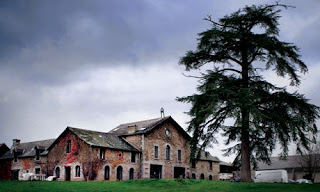Senior moment - A 98 year old woman in the UK wrote this to her bank:
Dear Sir,
I am writing to thank you for bouncing my cheque with which I endeavoured to pay my plumber last month. By my calculations, three nanoseconds must have elapsed between his presenting the cheque and the arrival in my account of the funds needed to honour it. I refer, of course, to the automatic monthly deposit of my Pension, an arrangement, which, I admit, has been in place for only thirty eight years. You are to be commended for seizing that brief window of opportunity, and also for debiting my account £30 by way of penalty for the inconvenience caused to your bank.
My thankfulness springs from the manner in which this incident has caused me to rethink my errant financial ways. I noticed that whereas I personally attend to your telephone calls and letters, but when I try to contact you, I am confronted by the impersonal, overcharging, pre-recorded, faceless entity which your bank has become. From now on, I, like you, choose only to deal with a flesh-and-blood person. My mortgage and loan payments will therefore and hereafter no longer be automatic, but will arrive at your bank by cheque, addressed personally and confidentially to an employee at your bank whom you must nominate. Be aware that it is an offence under the Postal Act for any other person to open such an envelope.
Please find attached an Application Contact Status which I require your chosen employee to complete. I am sorry it runs to eight pages, but in order that I know as much about him or her as your bank knows about me, there is no alternative. Please note that all copies of his or her medical history must be countersigned by a Solicitor, and the mandatory details of his/her financial situation (income, debts, assets and liabilities) must be accompanied by documented proof. In due course, I will issue your employee with PIN number which he/she must quote in dealings with me. I regret that it cannot be shorter than 28 digits but, again, I have modelled it on the number of button presses required of me to access my account balance on your phone bank service. As they say, imitation is the sincerest form of flattery. Let me level the playing field even further. When you call me, press buttons as follows:
1. To make an appointment to see me.
2. To query a missing payment.
3. To transfer the call to my living room in case I am there.
4. To transfer the call to my bedroom in case I am sleeping.
5. To transfer the call to my toilet in case I am attending to nature.
6. To transfer the call to my mobile phone if I am not at home.
7. To leave a message on my computer (a password to access my computer is required.
A password will be communicated to you at a later date to the Authorized Contact.)
8. To return to the main menu and to listen to options 1 through to 8.
9. To make a general complaint or inquiry, the contact will then be put on hold, pending the attention of my automated answering service. While this may, on occasion, involve a lengthy wait, uplifting music will play for the duration of the call.
Regrettably, but again following your example, I must also levy an establishment fee to cover the setting up of this new arrangement.
May I wish you a happy, if ever so slightly less prosperous, New Year.
Your Humble Client









